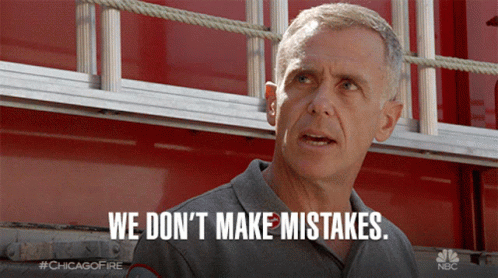When entrepreneurs in Poland are not fined: the law and consequences
-
Larisa Shishkova
Copywriter Elbuz
Confused, made a mistake, took the wrong step... and nothing! No fine, no punishment. How is this possible? How can entrepreneurs in Poland avoid punishment for their mistakes? In this article, we'll look at those rare cases where mistakes don't incur a penalty - and why it might be their best move. Hold on tight, because an exciting story awaits us!

Glossary
Right to make mistakes: The concept that entrepreneurs in Poland are not penalized for making mistakes in their business activities.
Entrepreneur: A person engaged in commercial activities, carrying out entrepreneurial activities.
Fine: Monetary punishment that entrepreneurs can receive for violating the law or making mistakes in their activities.
Legal basis: Legislation and rules that provide for the possibility of applying the right to error and determine the conditions for its application .
Consequences: Results and consequences for the entrepreneur that may arise if the right to error is applied or not .
Warning instead of fine: An alternative measure that can be applied instead of imposing a fine in cases where an entrepreneur has committed a mistake, but is not a violation of the law.
Right to make mistakes: When an entrepreneur has no right to make mistakes, and his mistakes or violations of the law always entail punishment for yourself.
Criticism of the right to error: Arguments and reasons expressed by critics of the right to error, indicating its possible shortcomings and problems.
An entrepreneur's right to make mistakes: when and how to use it?
It is often pleasant when a police officer does not issue you a fine for violating traffic rules, but warns you about the violation. But did you know that a similar right also exists for entrepreneurs in Poland? In certain cases, regulatory authorities may refrain from imposing fines on entrepreneurs and take advantage of the right to make mistakes by offering more lenient measures. In this article we will talk about what an entrepreneur’s right to make a mistake is, who can use it and when, and what consequences may arise from its use.
The right to make a mistake, or “prawo do błędu dla przedsiębiorcy”, provides entrepreneurs with the opportunity to replace the penalties provided for by law for violating business rules with other, more lenient measures. This right can be applied to individual entrepreneurs who have only recently started their activities. It was introduced into Polish legislation in 2020 and is designed to stimulate business development among the population.
What conditions must be met in order for an entrepreneur to exercise the right to make a mistake? In fact, the conditions are quite simple. Firstly, the entrepreneur must be entered into the Central Register and Information on Economic Activities of the CEIDG, that is, conduct business as an individual or as part of a civil partnership. Secondly, no more than 12 months must have passed since the start of business activity. However, the margin for error may also apply to those entrepreneurs who previously ran a business but closed or suspended it. In this case, for the margin of error to apply, at least 36 months must have passed from the date of the last suspension or termination.

But how exactly can an entrepreneur take advantage of the right to make mistakes? If an entrepreneur violates the rules related to his activities, the supervisory authority must require the elimination of the identified violations and the annulment of their consequences before imposing penalties or other measures. To do this, the entrepreneur must provide a written undertaking to eliminate violations within a specified period. If an entrepreneur stops breaking the law within the prescribed period and eliminates its consequences, he is not subject to punishment or taxation, and the regulatory authority refrains from imposing a fine or other sanctions and is limited to a warning.
However, it is worth noting that the margin for error does not apply to all types of violations of the law. For example, if the violation relates to previously violated legal norms, is a gross violation, or involves actions without obtaining the prior consent or permission of the competent authority, then the margin for error will not apply. Also, if the violations cannot be eliminated or they have caused irreversible consequences, the entrepreneur will not be able to exercise this right.
And, of course, we should mention the criticism that the right to make mistakes sometimes receives. Some entrepreneurs believe that the application of this right remains at the discretion of the regulatory authority and can lead to arbitrariness or corruption schemes. However, such cases are rather the exception, and most entrepreneurs assess the right to make mistakes as a positive norm in the law.
In conclusion, the entrepreneur's right to make mistakes can be an important incentive for business development in Poland. It provides the opportunity to replace penalties with other measures, which is a milder type of impact on entrepreneurs. However, certain conditions must be met and a written commitment to correct violations must be requested in order to exercise this right. Ultimately, the right to make mistakes promotes entrepreneurial activity and demonstrates flexibility and support from the government.
Let's summarize:
Things to do:
- Enter the entrepreneur into the Central Register and information on economic activities of CEIDG
- Conduct business for no more than 12 months from the date of its start
- Provide written obligation to correct violations within a specified period
What to avoid:
- Violate previously violated legal norms
- Perform gross violations of the law
- Act without obtaining prior consent or permission from the competent authority
- Failure to eliminate violations or create irreversible consequences
Please note that the right to error is permissible, but not mandatory, so the exercise of this right may depend on the decision of the supervisory authority.

Frequently asked questions on the topic “Right for error: when are entrepreneurs in Poland not fined?
1. What right to make mistakes do entrepreneurs have in Poland?
Entrepreneurs in Poland have the right to make mistakes, which allows them to avoid being fined for certain mistakes made in the course of business activities.
2. Who has the right to make mistakes in Poland?
The right to make mistakes is available to all entrepreneurs operating in Poland.
3. Can an entrepreneur receive a warning instead of a fine?
Yes, in certain situations an entrepreneur may receive a warning instead of a fine for his mistake.
4. When does an entrepreneur have no right to make a mistake in Poland?
An entrepreneur has no room for error if his actions are considered specifically intentional or violate basic safety standards or laws.
5. What could be the consequences of the absence of a fine for an entrepreneur in Poland?
In the absence of a fine, an entrepreneur can avoid financial losses, maintain the reputation of his business and avoid problems with regulatory authorities.
6. What legal grounds mean that there is no fine for entrepreneurs in Poland?
The lack of a fine for entrepreneurs in Poland may be due to lack of understanding of the situation, the complexity of the legislation or the insignificance of the violation.
7. Can the margin for error in Poland be criticized?
Yes, the margin for error in Poland can be a subject of criticism as some people believe that it allows entrepreneurs to avoid responsibility for their actions.

Thanks for reading - you are now a guru!
Congratulations, you have now become a real expert in the field of entrepreneurship in Poland! You have just mastered the knowledge that will help you avoid fines and mistakes in your business. Now you know about the legal basis and consequences associated with these cases.
Rest assured that you have made the right choice by reading this article. By doing so, you have received valuable information that will ensure your success and protection. Now you are ready to take on any challenge and ready to take action with confidence!
There may be many obstacles on the path to success, but with your insight and new knowledge, you can overcome them. Now that you know how to avoid fines in Poland, you have taken a significant step forward.
So relentlessly pursue your goals, be mindful and careful in your entrepreneurial decisions, and never stop learning new things. Your knowledge of this information will not only increase your self-confidence, but will also open up new opportunities for you.
Congratulations again and best of luck on your entrepreneurial journey! 🎉🚀

Article Target
Tell us about cases where entrepreneurs are not fined in Poland
Target audience
Entrepreneurs in Poland, lawyers, business consultants
Hashtags
Save a link to this article
Larisa Shishkova
Copywriter ElbuzIn the world of automation, I am a translator of ideas into the language of effective business. Here, every dot is a code for success, and every comma is an inspiration for Internet prosperity!
Discussion of the topic – When entrepreneurs in Poland are not fined: the law and consequences
The article talks about cases where entrepreneurs in Poland are not given fines for mistakes they have made. Examples, legal grounds and consequences of such cases will be highlighted.
Latest comments
9 comments
Write a comment
Your email address will not be published. Required fields are checked *













.png)

.png)








John
Interesting article! I never thought that in Poland entrepreneurs are not fined for mistakes. Can anyone share examples?
Marie
Really interesting topic! Here is one example: in Poland, if an entrepreneur obviously cannot fulfill a contract due to force majeure, then he is not subject to fines. This is very important for business!
Emilio
Thank you, Marie! Here is another example: in the event of a technical accident, when the entrepreneur cannot fulfill the terms of the contract, there are also no fines. What other situations could there be?
Oliver
Great, I’ll be sure to write down these examples! I think that the state in this way supports business development and encourages entrepreneurs to explore new areas of activity. What are your opinions on this matter?
Sophie
I completely agree with you, Oliver! This approach helps reduce risk and fear of mistakes, which in turn can encourage innovation and experimentation in business. What do you think, Thomas?
Thomas
I believe that this is an unnecessary scam for careless entrepreneurs. Why have such a privilege? This is not the case in our country and business is still developing successfully.
Hannah
Thomas, I understand your concerns, but sometimes there are unexpected situations when perfect execution of a contract becomes impossible. In such cases, not imposing fines is common sense.
Oleg
I agree with Hannah. In Ukraine, we also have some cases where entrepreneurs’ mistakes are not punished by fines. This contributes to business development and the creation of a favorable economic environment.
Marta
It's very interesting to hear different opinions! Personally, I believe that the right to make mistakes is not only support for entrepreneurs, but also an incentive to find new ways and opportunities. Business development is inextricably linked to risk and research.